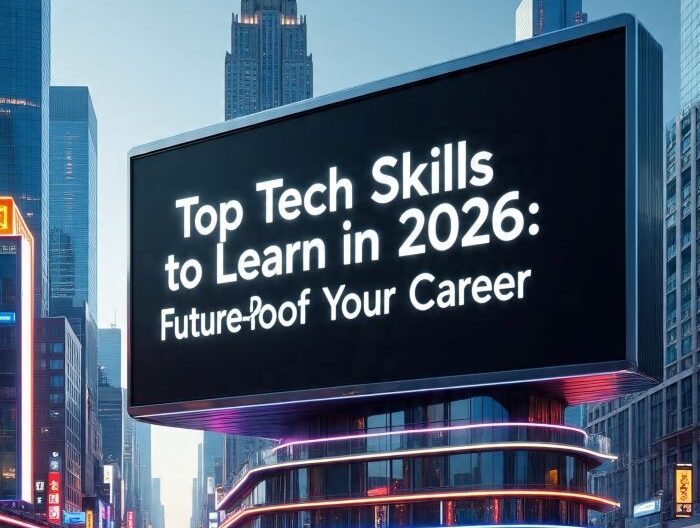
Introduction: The Skills That Will Shape Tomorrow
As we approach 2026, the tech landscape is evolving faster than ever. AI is mainstream, quantum computing is inching closer to reality, and sustainability is reshaping how we build and deploy technology. For professionals and enthusiasts alike, staying ahead means mastering the skills that will define the next wave of innovation.
Here’s your curated guide to the top tech skills to learn in 2026 — whether you’re upskilling, pivoting careers, or building the next big thing.
🧠 1. Artificial Intelligence & Machine Learning
AI is no longer niche — it’s foundational. From generative models to edge AI, the demand for talent is exploding.
- Key areas: LLM fine-tuning, reinforcement learning, AI ethics, multimodal models
- Tools to master: PyTorch, TensorFlow, Hugging Face, LangChain
- Why it matters: AI is powering everything from search engines to medical diagnostics
🔐 2. Cybersecurity & Zero Trust Architecture
With rising threats and hybrid work models, security is a top priority.
- Key areas: Threat modeling, SOC automation, passkey implementation, cloud security
- Certifications: CISSP, CEH, CompTIA Security+
- Why it matters: Every company is now a tech company — and every tech company needs defenders
🧬 3. Quantum Computing Fundamentals
Still emerging, but 2026 is the year to get ahead of the curve.
- Key areas: Qubits, quantum gates, error correction, quantum algorithms
- Platforms: IBM Qiskit, Microsoft Azure Quantum, Google Cirq
- Why it matters: Quantum will disrupt cryptography, optimization, and materials science
🧱 4. Full-Stack Development with AI Integration
Modern apps are smarter — and developers need to be too.
- Key areas: React, Node.js, serverless architecture, AI APIs, prompt engineering
- Frameworks: Next.js, FastAPI, Supabase
- Why it matters: AI-infused apps are the new standard for user experience
🌐 5. Cloud-Native Engineering & FinOps
Cloud isn’t just infrastructure — it’s strategy.
- Key areas: Kubernetes, observability, cost optimization, multi-cloud orchestration
- Certifications: AWS Certified Solutions Architect, Google Cloud Professional Engineer
- Why it matters: Efficient cloud usage is critical for scale and sustainability
📊 6. Data Storytelling & Visualization
Raw data is useless without insight — and insight needs clarity.
- Key areas: Data wrangling, dashboard design, narrative analytics
- Tools: Power BI, Tableau, Looker, Observable
- Why it matters: Decision-makers need compelling, actionable stories from data
🧠 7. Digital Ethics & Responsible Tech
Tech without ethics is risk. 2026 demands accountability.
- Key areas: Bias mitigation, privacy design, algorithmic transparency
- Frameworks: IEEE Ethically Aligned Design, EU AI Act guidelines
- Why it matters: Users and regulators are watching — and trust is currency
🛠️ 8. Automation & DevOps 2.0
From CI/CD to GitOps, automation is evolving.
- Key areas: Infrastructure as Code, platform engineering, AI-powered testing
- Tools: Terraform, ArgoCD, GitHub Actions, Ansible
- Why it matters: Speed, reliability, and scale depend on smart automation
Final Thoughts: Build for What’s Next
2026 isn’t just about learning new tools — it’s about thinking differently. The best tech professionals will blend technical depth, ethical awareness, and creative problem-solving. Whether you’re a developer, designer, analyst, or strategist, these skills will help you thrive in a world where tech is no longer optional — it’s elemental.
You might also like our TUTEZONE section, which contains exclusive tutorials on making your life simpler using technology.




